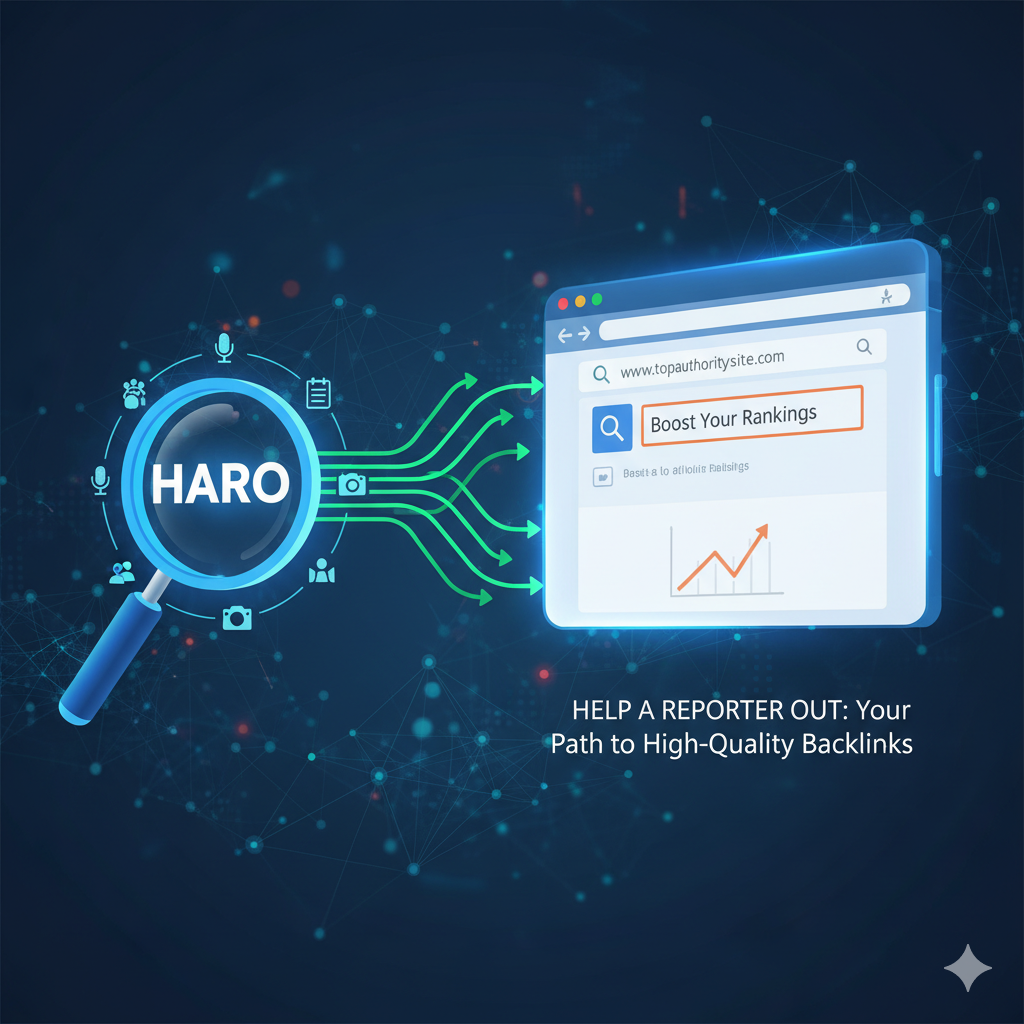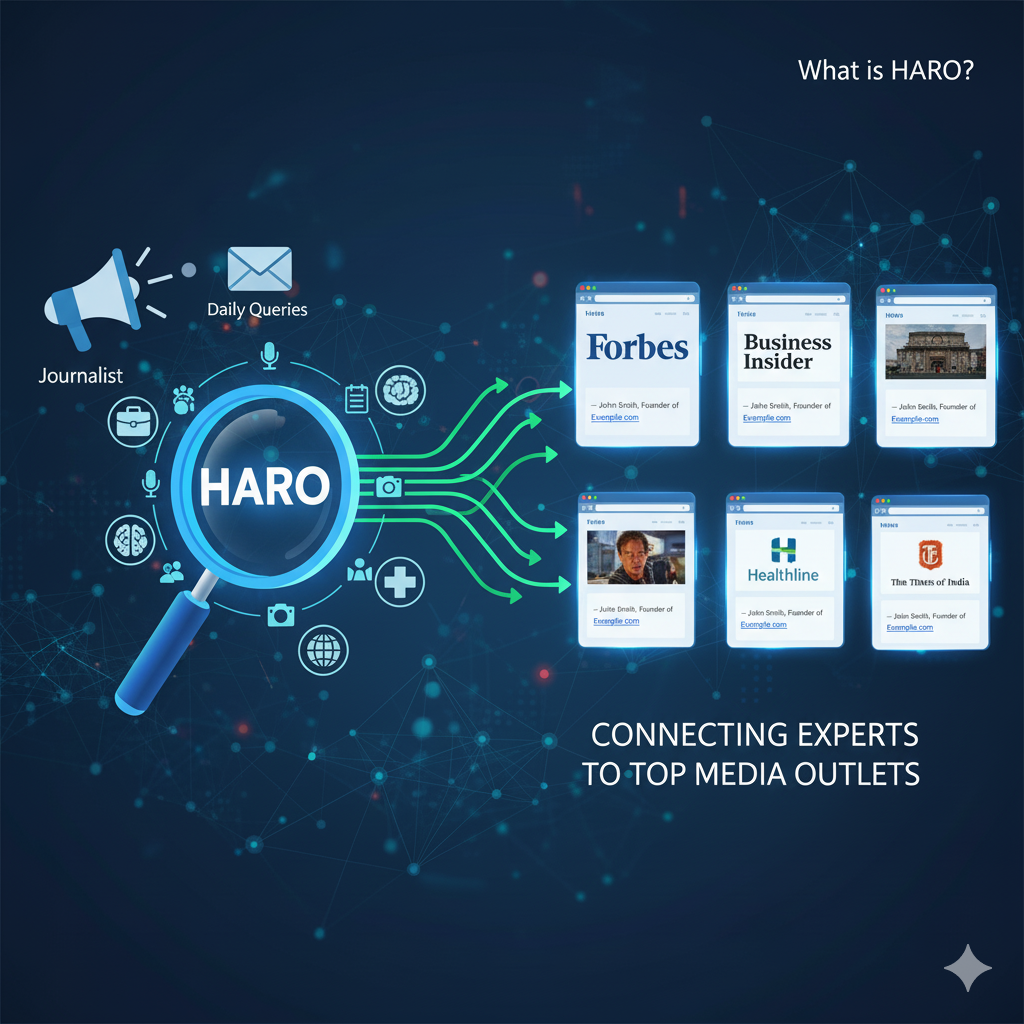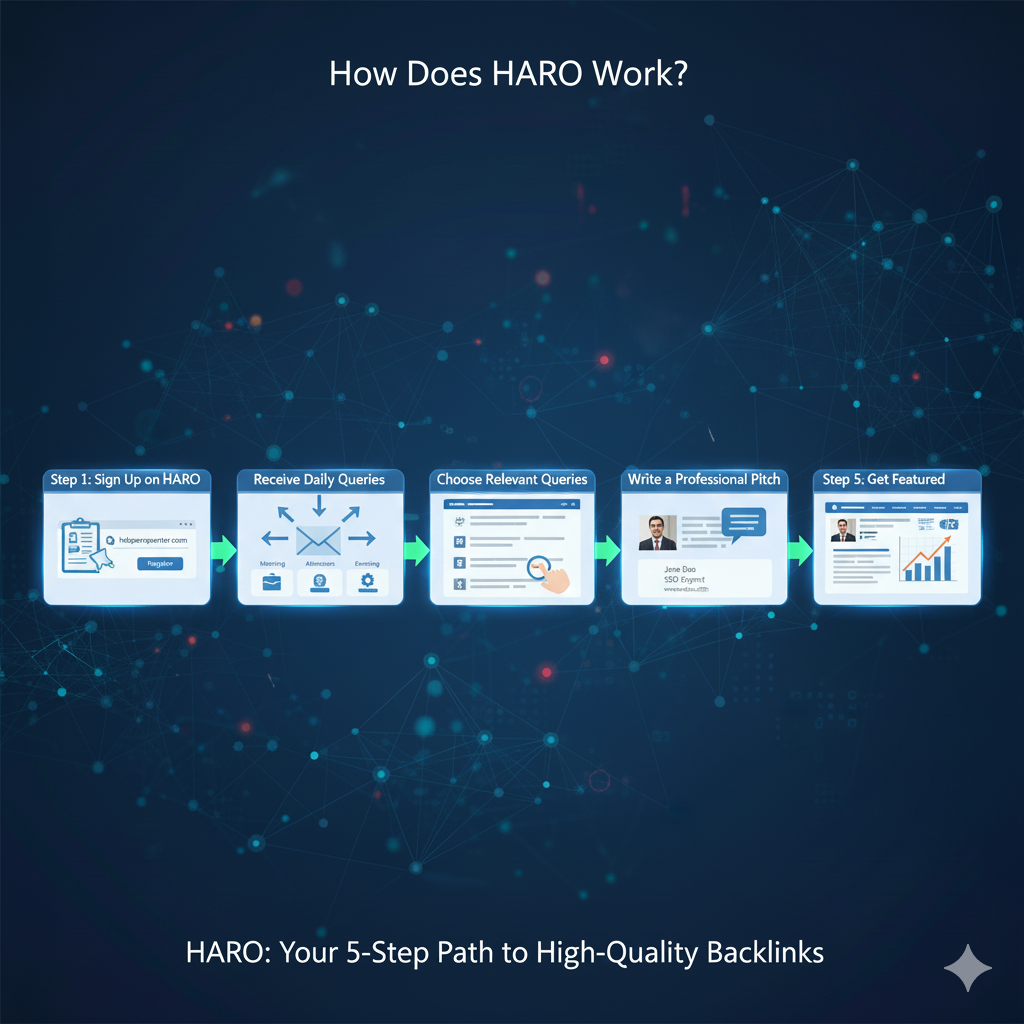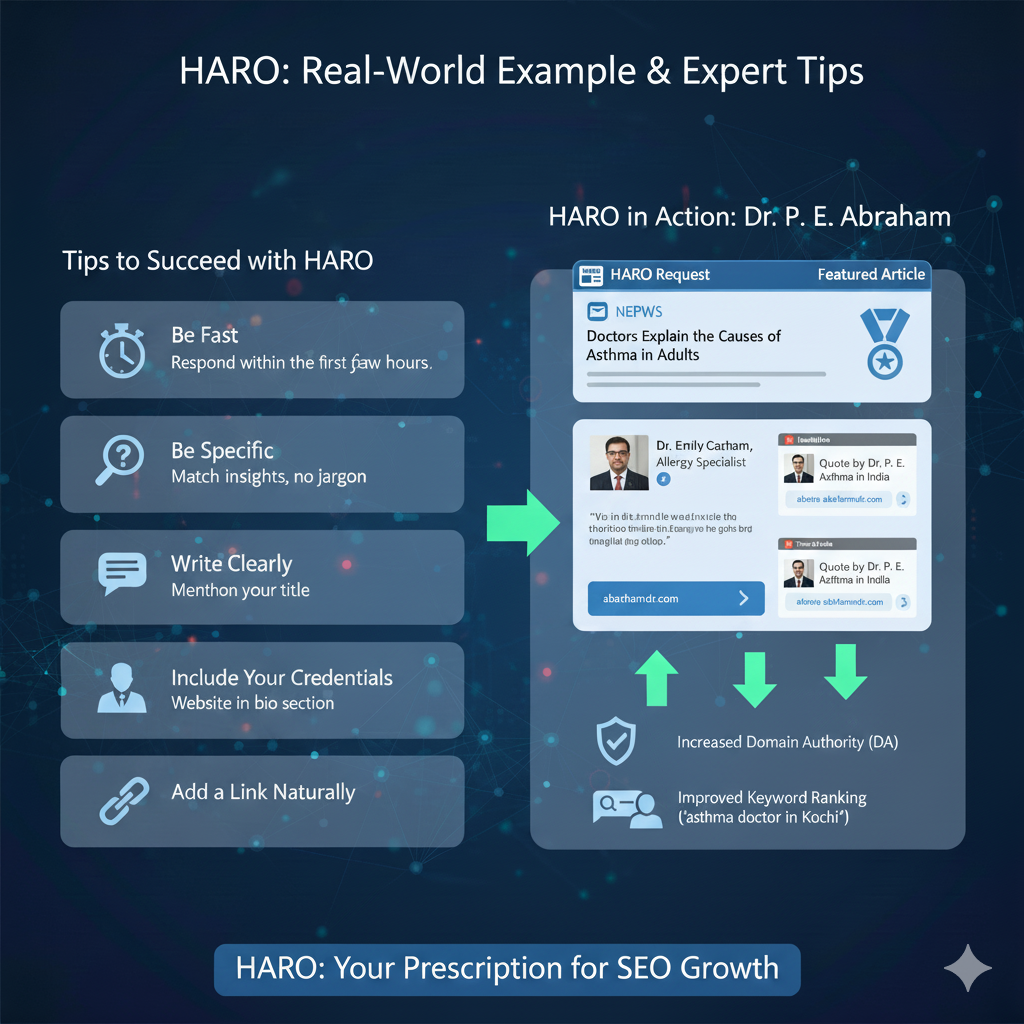Introduction

In today’s digital world, backlinks play a crucial role in improving your website’s authority and ranking on search engines. While many methods exist to build backlinks, HARO (Help A Reporter Out) stands out as one of the most trusted and organic ways to gain high-quality links from reputable websites.
This guide will explain everything you need to know about HARO — from how it works to how it can transform your SEO strategy.
What Is HARO?

HARO (Help A Reporter Out) is a free online service that connects journalists with experts or business owners who can provide valuable insights for their stories.
When a journalist writes an article and needs expert quotes, HARO sends out daily emails with topic requests. If your expertise matches a topic, you can respond — and if your response gets published, your name and website link appear in that article.
This gives you a backlink from a high-authority media site such as Forbes, Business Insider, Healthline, or The Times of India.
Why Is HARO Important for SEO?

Here’s how it benefits your SEO:
- High-Quality Backlinks:
Backlinks from top-tier news and media websites significantly improve your domain authority (DA). - Brand Credibility:
Being featured as an expert in a credible publication builds trust and recognition. - E-E-A-T Signals:
Google emphasizes Expertise, Experience, Authority, and Trust. HARO helps strengthen all four signals. - Improved Keyword Ranking:
The more high-quality links you have, the higher your site can rank for target keywords like “asthmaspecialist,” “digital marketing tips,” or “best allergy treatment.”
How Does HARO Work?

Using HARO is simple and effective. Here’s the step-by-step process:
- Sign Up on HARO:
Go to helpareporter.com and register as a source (expert). - Receive Daily Queries:
You’ll receive three daily emails (morning, afternoon, evening) containing journalist requests from various topics like health, business, or technology. - Choose Relevant Queries:
Pick queries that match your niche or expertise. - Write a Professional Pitch:
Respond quickly with short, expert answers and include your name, title, and website. - Get Featured:
If selected, the journalist includes your quote and links back to your site — giving you free PR and backlinks.
Tips to Succeed with HARO

To get consistent results from HARO, follow these expert tips:
- Be Fast: Journalists receive hundreds of replies. Respond within the first few hours.
- Be Specific: Only reply to topics where you truly have expertise.
- Write Clearly: Avoid jargon. Provide practical insights.
- Include Your Credentials: Mention your title (e.g., Dr. P. E. Abraham, Allergy Specialist).
- Add a Link Naturally: Include your website in your bio section.
Example of HARO in Action
Suppose Dr. P. E. Abraham responds to a HARO request titled “Doctors Explain the Causes of Asthma in Adults.”
If the journalist features his quote, the article might appear on Healthline or Times of India, linking to abrahamdr.com.
That single link could:
- Increase the site’s domain authority,
- Improve keyword ranking for “asthma doctor in Kochi,” and
- Drive relevant traffic directly from the article.
Advantages of Using HARO
| Benefit | Description |
|---|---|
| Free to Use | Basic HARO plan costs nothing — perfect for startups. |
| Authority Building | Positions you as an industry expert. |
| SEO Value | Backlinks from trusted domains improve rankings. |
| Brand Visibility | Your name appears on popular news platforms. |
Common Mistakes to Avoid
- Submitting generic replies with no expert insights.
- Ignoring journalist deadlines.
- Using promotional language instead of adding value.
- Failing to proofread your pitch.
Conclusion
HARO (Help A Reporter Out) is more than just a PR platform — it’s a powerful SEO tool that can help you build credibility, trust, and visibility online.
By consistently responding to relevant journalist requests with valuable insights, you can earn high-quality backlinks that boost your rankings and position your brand as an authority in your field.